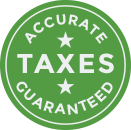What Is a Church?
For purposes of U.S. tax law, churches are considered to be public charities, also known as Section 501(c)(3) organizations. As such, they are generally exempt from federal, state, and local income and property taxes. “Exempt” means they don’t have to pay these taxes. This is so even though they may earn substantial amounts of money. Not just anybody…
Decide whether to file for recognition of tax-exempt status
The Internal Revenue Code provides an automatic federal tax exemption for churches. Some churches choose to file for formal recognition of tax-exempt status and some do not. The following questions may help a church to decide whether to file for tax-exempt status: • How large is the church expected to become? If the expected income is less than…
How the 90-Day Mileage Log Rule Works
Often in an IRS audit, the examiner will ask for your mileage log at the beginning of the audit. If you do not have a mileage log, then you are in danger of losing more than just vehicle deductions. Think about it. If you don’t have a log for mileage, what is the IRS examiner…
Don’t Let Your Tax Receipts Fade
Are your receipts too faint to read? This is a common problem with the thermal paper receipts that many restaurants use. Over time the images disappear, and if you leave them in the sun, you can almost watch the ink leave the thermal paper. Protect yourself. You need to scan or photocopy the thermal paper…
Can Nursing Home Expenses be Claimed as Housing Allowance?
If the clergy person is a permanent resident of the nursing home, the housing allowance applies to the nursing home because the nursing home is the minister’s primary residence. Charges for food and medical care are not considered housing expenses. Ask the administrator of the residence to provide the portion of their monthly payments that…
Tax Deductions for Assisted Living Costs
If you or a family member lives in an assisted living facility, you know that assisted living costs continue to rise every year. But did you know some of those costs may be tax deductible? Medical expenses, including some long-term care expenses, are deductible if the expenses are more than 7.5 percent of your adjusted gross…
Commuting vs. Ministry Miles
Commute miles are from your home to your first ministry location and from your last ministry location to your home. Multiple trips you make throughout the day to your home are also considered commuting. Returning to the church from home for an evening meeting (such as a board meeting) would be considered commuting. Driving to…
Reminder: Third Quarter Estimated Taxes Due!!!
Clergy are subject to estimated tax payments on a quarterly basis which include federal, social security and state taxes. For example, when you receive clergy income in the first quarter of the year, the taxes are due at the end of that quarter. The year is divided into four payment periods, or due dates, for…
Church Pro Advisor Support
Researching a clergy tax law, church payroll & HR or bookkeeping issue on your own takes time and can leave you wondering if you’ve got the right answer. Turn to Clergy Financial Resources to save time while getting the correct answers. Most callers want answers to specific questions, interpretations of new laws or maybe you don’t have…
When Should I Start Collecting Social Security?
Social Security benefits are typically computed using “average indexed monthly earnings.” This average summarizes up to 35 years of a worker’s indexed earnings. The Social Security department applies a formula to this average to compute the primary insurance amount (PIA). The PIA is the basis for the benefits that are paid to an individual. The…






